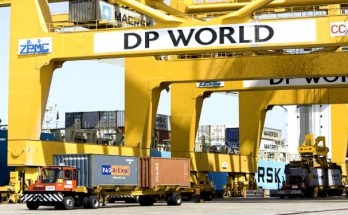Introduction
As global demand for energy continues to rise, major players like the United States, the European Union, and Japan are facing a new competitor in the race to secure long-term energy supplies: China. The economic powerhouse has increasingly focused on securing the resources needed to sustain its rapid growth, locking down sources of oil and other necessary raw materials across the globe. As part of this effort, China has turned to Africa. Through significant investment in a continent known for its political and social risks, China has helped many African countries develop their nascent oil sectors while benefiting from that oil through advantageous trade deals. However, China faces growing international criticism over its allegedly exploitative business practices, coupled with a failure to promote good governance and human rights. At the same time, complex local and regional politics are challenging China’s noninterference policy in the affairs of African governments.
China’s Demand for Energy
China’s booming economy, which has averaged an annual growth rate of 9 percent for the last two decades, requires massive levels of energy to sustain that growth. Though China relies on coal for most of its energy needs, it is the second-largest consumer of oil in the world behind the United States. Once the largest oil exporter in Asia, China became a net importer of oil in 1993. The International Energy Agency’s World Energy Outlook 2011 (PDF) projects that China will become the world’s largest net importer of oil by 2020. The report estimatesthe country’s net imports for 2011 at nearly five million barrels per day, a number it says will climb to around thirteen million by 2035.
China imports more than half of its crude oil from the Middle East, which holds nearly 62 percent of the world’s reserves. According to the U.S. Energy Information Administration, of China’s approximately 4.8 million barrels per day of imported crude accounted for in 2010, more than 2.2 million barrels, or 47 percent, came from the Middle East. China’s second-largest source of crude imports for that year was Africa, from which it imported 1.5 million barrels per day, or 30 percent.
China now receives an estimated one-third of its oil imports from Africa (ChinaBriefing), which holds just 9 to10 percent of the world’s oil reserves. Its largest African suppliers of oil are Angola, Sudan, the Republic of Congo, Equatorial Guinea, and Nigeria. Other African countries that export oil to China include Gabon, Algeria, Libya, Liberia, Chad, and Kenya.
Sino-African Trade
While the majority of Africa’s exports to China are in oil, it also exports iron ore, metals, and other commodities, as well as a small amount of food and agricultural products. At the same time, China exports a range of machinery and transportation equipment, communications equipment, and electronics to African countries. In 2009, China surpassed the United States as Africa’s largest trade partner (WSJ). According to the Chinese Ministry of Commerce, Sino-African trade reached $126.9 billion for 2010, while the trade volume between China and Africa rose 30 percent year-on-year during the first three quarters of 2011, signaling a new record high (ChinaDaily). China’s top five African trading partners (CapitalWeek) are Angola, South Africa, Sudan, Nigeria, and Egypt.
China has taken a two-pronged approach in its economic relations with Africa, American University’s Deborah Brautigam wrote at ForeignAffairs.com in January 2010. It has offered resource-backed development loans to oil and mineral-rich nations like Angola, and developed special trade and economic cooperation zones in several states, including Nigeria, Ethiopia, and Zambia. Special economic zones, Brautigam argues, allow African countries to “improve poor infrastructure, inadequate services, and weak institutions by focusing efforts on a limited geographical area.”
The Chinese Approach to Securing Africa’s Oil
China has pursued exploration and production deals in smaller, low-visibility countries, such as Gabon, while also targeting Africa’s largest oil producers–with whom the United States and Europe have longstanding relationships–by offering integrated aid packages.
In Angola, Africa’s largest exporter of oil to China, oil deals “are characterized by loans and credit lines in connection with infrastructure projects,” writes Shelly Zhao for China Briefing magazine. A series of credit lines and loans since 2004 has included funds for Chinese companies to build railroads, schools, roads, hospitals, bridges, and offices; lay a fiber-optic network; and train Angolan telecommunications workers. According to a Center for Strategic and International Studies paper (PDF), in September 2007 the Export-Import Bank of China extended a $2 billion oil-backed loan for a series of projects in Angola, including the construction of new schools and hospitals, as well as the development of the country’s energy and water sectors.
“An economic approach focusing on enlarging its commercial interests is the driving factor for China’s engagement with petroleum producing states.” – Fanie Herman and Tsai Ming-Yen
China has taken a starkly different approach from that of the West in Africa, argues Howard W. French of Columbia University in a May 2010 Atlantic article. “It has focused on trade and commercially justified investment, rather than aid grants and heavily subsidized loans,” he writes. French adds that unlike the West, China” has declined to tell African governments how they should run their countries, or to make its investments contingent on government reform. ”
China’s State and Business Goals in Africa
Some experts suggest that the need to secure natural resources–whether oil, metal, or timber–is the driving component behind China’s foreign policy toward Africa. China’s manufacturing sector has created enormous demand for aluminum, copper, nickel, iron ore, and oil. As this trend was under way in 2005, David Zweig and Bi Jianhai wrote in Foreign Affairs that China “has been able to adapt its foreign policy to its domestic development strategy” to an unprecedented level by encouraging state-controlled companies to seek out exploration and supply contracts with commodity-producing countries. At the same time, Beijing aggressively courts the governments of those countries with diplomacy, trade deals, debt forgiveness, and aid packages.
Yet some analysts and U.S. policymakers caution against conflating China’s foreign policy goals with the actions of its energy firms. In a June 2008 Congressional testimony, the deputy assistant secretaries of state for East Asia and Africa noted, “There are oftenexaggerated charges that Chinese firms’ activities or investment decisions are coordinated by the Chinese government as some sort of strategic gambit in the high-stakes game of global energy security. In reality, Chinese firms compete for profitable projects not only with more technologically and politically savvy international firms, but also with each other.”
China’s national oil companies are, in some cases, politically stronger than the government agencies charged with regulating them. In a 2007 Washington Quarterly article, Bates Gill and James Reilly refer to this conflict as a “classic principal-agent dilemma” (PDF), noting that China’s oversight agencies–including the Ministry of Foreign Affairs and the Ministry of Commerce–do not have authority over Chinese corporations overseas.
At the same time, local African workers increasingly fault Chinese companies for maintaining unfair labor practices, says Ian Taylor, a professor of African politics at the Scotland-based University of St. Andrews. Beijing has “less and less” ability to control these companies, he explains, thus undermining China’s official foreign policy rhetoric in Africa of a “win-win” situation for both sides.
Policy of Noninterference
Since former Chinese president Jiang Zemin inaugurated China’s reengagement with Africa in 1996, the Chinese have tried to maintain a policy of “noninterference” in the domestic affairs of African countries, explains Donald L. Sparks in an April 2011 paper for theJournal of African Studies and Development.
In an August 2011 paper in the African Journal of Political Science and International Relations, Fanie Herman and Tsai Ming-Yen compare China’s foreign policy in Africa to that of the United States. “The U.S. focuses on humanitarianism, good governance, and democratization of petroleum-producing states in their oil diplomacy approach,” they write. On the other hand, they argue, “China, the world’s fastest growing economy, views SSA [sub-Saharan Africa] as a welcome offloading ground for its products in exchange for oil. An economic approach focusing on enlarging its commercial interests is the driving factor for China’s engagement with petroleum producing states.”
Moreover, argues Richard Dowden in his 2009 book Africa: Altered States, Ordinary Miracles, the policy of noninterference has freed up China to sell weapons to rogue states like Sudan and Zimbabwe. “When the Sudanese government forcibly removed thousands of people from their land at Merowe so that the Chinese could build a dam on the Nile in exchange for oil concessions,” Dowden writes, “Beijing said it was none of its business.”
China’s policy of noninterference has been most controversial–and challenged–in its policy toward Sudan. In 2007, China altered its policy of blocking UN Security Council resolutions that authorized peacekeeping troops for the contested Sudanese region of Darfur, and subsequently placed modest pressure on Khartoum to allow a deployment of UN forces.
“The fundamental problem facing Africa is governance–it doesn’t matter how many roads or ports.” – Ian Taylor
China’s policy of noninterference in Sudan was further complicated when South Sudan seceded from Sudan (NYT) in July 2011. Prior to South Sudan’s independence, China had supported–mainly through the selling of arms–the Khartoum government’s efforts to crush a longtime rebel uprising in the south. However, with most of the area’s oil located in what is now South Sudan, China has had to recalibrate its policy toward the southern Sudanese rebels. It has since become the main negotiator in an oil dispute between the two Sudans. However, China’s new diplomatic role–and traditional alliance with Khartoum–was challenged in January 2012 when rebels loyal to South Sudan kidnapped twenty-nine Chinese workers (WSJ) in the state of South Kordofan in Sudan.
Assessing the Benefits of Sino-African Ties
Chinese investment in Africa has helped spur consistently high economic growth. The International Monetary Fund’s October 2011 Regional Economic Outlook for Sub-Saharan Africa (PDF) estimates growth of 5.3 percent and 5.8 percent for 2011 and 2012, respectively.
Some analysts say China’s efforts in Africa–from building infrastructure to forgiving billions in debt to providing medical support–are for building goodwill for later investment opportunities or stockpiling international support for contentious political issues. Dowden writes in his book, “China is playing a long game for oil and other raw materials in Africa and securing allies who will vote for it in the United Nations.” Meanwhile, St. Andrews’ Taylor says, “The fundamental problem facing Africa is governance–it doesn’t matter how many roads or ports.”
In addition to international observers, many Africans themselves have expressed frustration over China’s role on the continent, having accused Chinese companies of underbidding local firms and not hiring Africans. At the same time, Chinese companies that do hire African workers have been criticized for failing to maintain fair labor relations. In Zambia, managers of Chinese mining companies have banned union activity, and in at least two instances, have been charged with attempted murder after opening fire on African employees protesting poor working conditions (Atlantic). In September 2011, Michael Sata won Zambia’s presidency largely by tapping into anti-Chinese resentment. He has called on foreign investors to “abide by Zambia’s labor laws” (CSM).
International observers say China’s willingness to pay bribes–as documented byTransparency International’s 2011 Bribe Payers Index report–and to attach few prerequisites for aid undermines both local and international efforts to implement good governance and macroeconomic reforms.
China’s engagement in Africa has also raised concerns in Washington, as some recent diplomatic cables leaked in December 2010 by the whistle-blowing website WikiLeaks show.A U.S. diplomatic cable, as reported by the Guardian, noted that if oil or gas is found in Kenya, China’s engagement with that country would likely grow. “Kenya’s leadership may be tempted to move ever closer to China in an effort to shield itself from Western, and principally U.S., pressure to reform,” the memo said. A separate U.S. cable from Nigeria (Guardian) described China as “a very aggressive and pernicious economic competitor with no morals.”
Accusations over China’s exploitative behavior in Africa have prompted questions about the future of the relationship. French raises one such question in the Atlantic: “Can Chinese money and ambition succeed where Western engagement has manifestly failed?” Or, he asks, “will China become the latest in a series of colonial and neocolonial powers in Africa, destined like others to leave its own legacy of bitterness and disappointment?”



